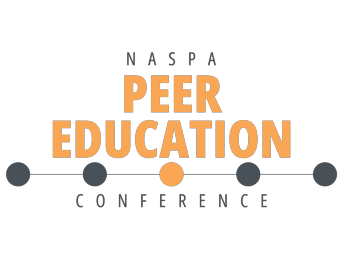
NASPA Peer Education Conference
Health, Safety, and Well-being Alcohol and Other Drug Campus Safety and Violence Prevention Health, Safety, and Well-being Initiatives Student Leadership Programs Wellness and Health Promotion Graduate Undergraduate
January 15 - January 17, 2026 Chicago, IL
Join us at the 2026 Peer Education Conference (formerly General Assembly), now part of the NASPA Strategies Conferences in Chicago, IL. Students and advisors from across the nation will gather in-person to be inspired, share ideas, and build exceptional peer education programs promoting strategies in health, safety, and student leadership.
Call for Proposals is now open!
Submit Today!
Presented By
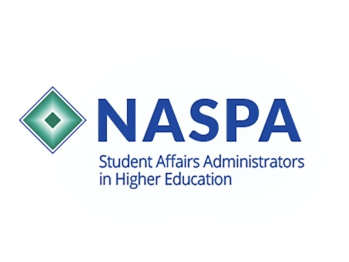
About
NASPA's Peer Education Conference: a NASPA Strategies Conference affords peer educators and advisors a tremendous selection of learning opportunities to contribute to the development of individual peer educators, groups, advisors, and the field of peer education. The Peer Education Conference also provides pre-conference learning opportunities to enhance the conference experience, including the Certified Peer Educator (CPE) Train-the-Trainer Course.
The Peer Education Conference is the premier annual gathering for peer educators and their advisors to connect, learn, and grow. Through engaging sessions and shared experiences, attendees explore emerging campus wellness trends, strengthen practical leadership and facilitation skills, and discover innovative approaches to peer education. Whether you're looking to deepen your knowledge, bring fresh ideas back to your campus, or build meaningful connections with others doing this work, the conference offers inspiration, skill-building, and community in equal measure. You’ll leave with actionable tools, new perspectives, and renewed motivation to prioritize student well-being and peer-led impact.
To learn more about Confernce Registration, Full Schedule, Featured Speakers, Contiunuing Education, Venue, or Sponsors, click HERE to be redirected to the NASPA Strategies Conferences main page.
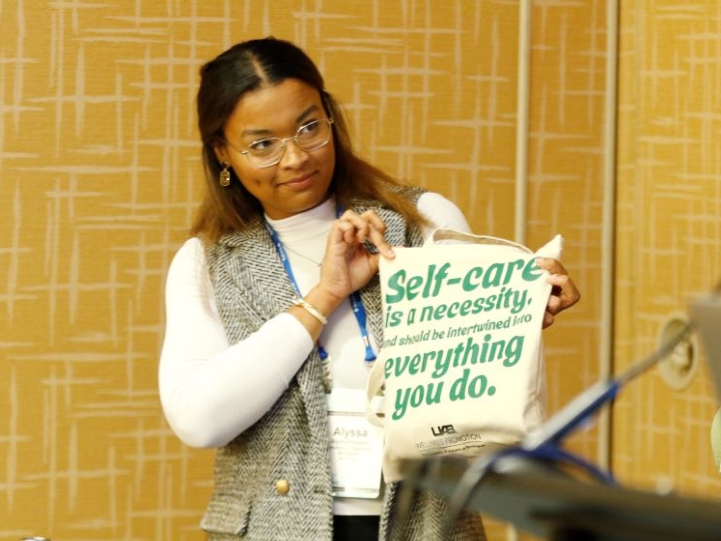
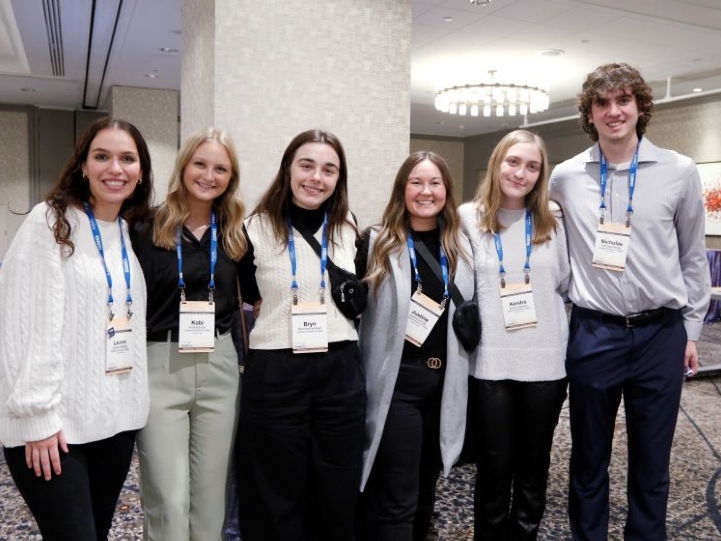
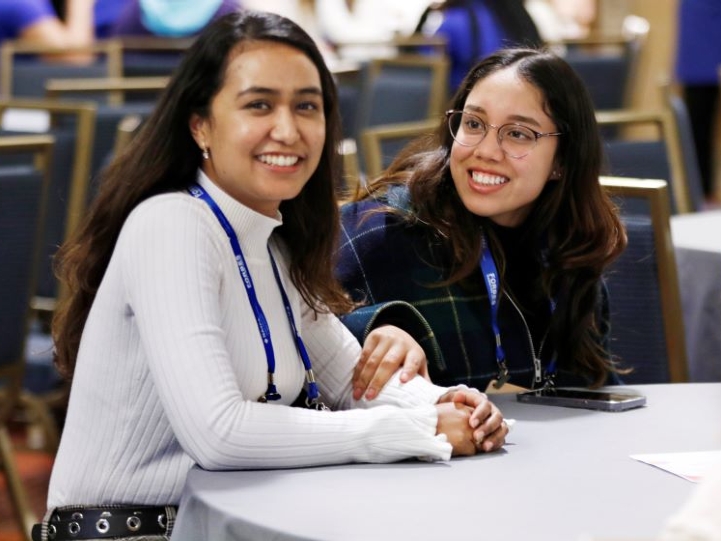
Conference Themes and Learning Outcomes
The 2026 Peer Education Conference themes are intentionally designed to create a well-rounded learning experience for both peer educators and their advisors. Together, the themes guide participants through understanding current trends and challenges facing campus communities, developing the individual skills needed to address those challenges, and exploring innovative, adaptable strategies that can be brought back to their own campuses. Whether you're planning to submit a session or simply looking ahead to what you'll learn, explore each theme in more detail below to see how they shape the full conference experience.
Current Trends and Emerging Issues
Sessions in this category should expose peer educators and/or advisors to emerging issues, evolving trends, and forward-facing challenges that may influence the peer education landscape. Sessions should raise awareness, spark critical thinking, and equip attendees to respond proactively to new developments affecting student wellness and peer-led initiatives.
-
Identify emerging trends in campus, community, and digital wellness that impact peer education initiatives.
-
Explore effective strategies for engaging a broad range of student perspectives within peer education efforts.
-
Assess evolving factors influencing peer educator group development, recruitment, and retention, and discuss adaptable solutions for various campus environments.
Individual Skill Building and Leadership Development
Sessions in this category should focus on equipping peer educators and/or advisors with practical skills to strengthen their impact and confidence. Sessions may build core leadership competencies (public speaking, program planning, group facilitation, retention strategies, etc.) and/or enhance attendees’ ability to effectively engage with key content areas (mental health and well-being, substance misuse prevention, bystander intervention, sexual health, etc.).
-
Build practical and interpersonal skills to strengthen a peer educator’s or advisor’s effectiveness in their role
-
Evaluate current research and best practices in contemporary health education to design high-impact programming
-
Develop leadership, supervision, and mentorship skills that foster meaningful connection, collaboration, and support
Adaptable Solutions and Innovative Approaches
Sessions in this category should highlight creative, student-driven programs and forward-thinking strategies that can be adapted and implemented across campuses. Topics may include successful policy advocacy, data-informed program redesign, or innovative wellness initiatives. Sessions should leave attendees with tangible tools, templates, or actionable ideas they can apply to their own peer education efforts.
-
Identify innovative and promising strategies for prevention, harm reduction, and risk reduction programming
-
Explore how successful peer education initiatives can be adapted across different campus contexts
-
Apply evaluation data to strengthen programs, inform planning, and promote student engagement
-
Demonstrate how peer education groups can foster collaboration to support students engaging in high-risk behaviors
-
Train student leaders to use creative, solution-focused approaches to address campus challenges
Call for Proposals
- Pre-conference Workshop Submission Deadline: August 5, 2025
- Main Program Submission Deadline: September 16, 2025
- Meeting/Reception Request Deadline: October 3, 2025
CALL FOR PROPOSALS IS NOW OPEN!
Submit Your Proposal Today!
The 2026 NASPA Strategies Conferences, including the Peer Education Conference, planning committees invites program proposals from higher education professionals and student peer educators who are part of the essential systems addressing college student safety, health, and well-being are invited to submit their proposals. These functions are irreplaceable components of an environment conducive to learning and development, and the field of student affairs prevention professionals passionately dedicated to this work need your expertise. We welcome you to submit a program for this dynamic series of conferences and join us in January to optimize your own programs and services in the company of the largest student affairs health and wellness event in the field.
The conference planning committee encourage program proposals regarding proven practices with content that algin with the peer education conference themes and learning outcomes below, engage participants in fruitful discussions and provide meaningful content to bring back to their campuses.
Please note: all presenters must register to attend the 2026 NASPA Strategies Conferences in-person. There will not be any virtual presentation opportunities.
Review Programs for the 2026 NASPA Strategies Conferences
NASPA is also seeking reviewers to evaluate program proposals. Did you know that you can submit a proposal AND serve as a reviewer? You will not be assigned to review your own program. Consider contributing your experience and expertise to the program review process!
Sign Up to Review Proposals!
- Program Review Assignments Received: Emailed by September 17
- Program Review Deadline: October 3 at 11:59pm Pacific Time
Peer Education Conference Proposal Submission Guide
This guide will assist Peer Education Advisors and Peer Educators develop, write, and submit strong, competitive proposals for the NASPA Peer Education Conference, part of the 2026 NASPA Strategies Conference.
Conference Themes & Learning Outcomes
Peer Education Conference
Current Trends and Emerging Issues
Sessions in this category should expose peer educators and/or advisors to emerging issues, evolving trends, and forward-facing challenges that may influence the peer education landscape. Sessions should raise awareness, spark critical thinking, and equip attendees to respond proactively to new developments affecting student wellness and peer-led initiatives.
-
Identify emerging trends in campus, community, and digital wellness that impact peer education initiatives.
-
Explore effective strategies for engaging a broad range of student perspectives within peer education efforts.
-
Assess evolving factors influencing peer educator group development, recruitment, and retention, and discuss adaptable solutions for various campus environments.
Individual Skill Building and Leadership Development
Sessions in this category should focus on equipping peer educators and/or advisors with practical skills to strengthen their impact and confidence. Sessions may build core leadership competencies (public speaking, program planning, group facilitation, retention strategies, etc.) and/or enhance attendees’ ability to effectively engage with key content areas (mental health and well-being, substance misuse prevention, bystander intervention, sexual health, etc.).
-
Build practical and interpersonal skills to strengthen a peer educator’s or advisor’s effectiveness in their role
-
Evaluate current research and best practices in contemporary health education to design high-impact programming
-
Develop leadership, supervision, and mentorship skills that foster meaningful connection, collaboration, and support
Adaptable Solutions and Innovative Approaches
Sessions in this category should highlight creative, student-driven programs and forward-thinking strategies that can be adapted and implemented across campuses. Topics may include successful policy advocacy, data-informed program redesign, or innovative wellness initiatives. Sessions should leave attendees with tangible tools, templates, or actionable ideas they can apply to their own peer education efforts.
-
Identify innovative and promising strategies for prevention, harm reduction, and risk reduction programming
-
Explore how successful peer education initiatives can be adapted across different campus contexts
-
Apply evaluation data to strengthen programs, inform planning, and promote student engagement
-
Demonstrate how peer education groups can foster collaboration to support students engaging in high-risk behaviors
-
Train student leaders to use creative, solution-focused approaches to address campus challenges
Type of Sessions Offered
Types of Sessions Offered:
Types of sessions available to deliver your proposal content:
|
General Interest Session (60 mins) |
The most common educational opportunity at the conference, usually consisting of the presentation of a program, data, research, or theoretical concept followed by audience questions and brief discussion. |
|
Extended General Interest Session (90 mins) |
Provide additional time for audience engagement or discussion. This format is also appropriate for panel discussions, skill demonstration and practice, or multi-institutional case study presentations. There are a limited number of extended general interest session opportunities. |
|
Roundtable Discussion Session (60 mins) |
Less formal ways to engage other attendees around a central topic or program area. Facilitators usually provide a brief introduction to a topic (5-10 minutes) and then lead a discussion with several prompting questions. |
|
Poster Session |
Poster sessions are appropriate for sharing research or program evaluation. Participants will visually represent their data and conduct several brief presentations for small groups of attendees (3-5 minutes, usually). All Poster Sessions will be hosted during the Thursday Opening Reception from 5:30 p.m. to 7:00 p.m. |
|
Pre-Conference Session (3 hours) |
Pre-conference sessions are three hour sessions offered the day before the conference. Designed as highly specialized opportunities to discuss a specific topic or program. Pre-conference sessions will require participants to pre-register for a fee. |
|
Pre-Conference Institutes (8 hours) |
Pre-conference institutes are full-day (eight hours) programs held prior to the conference. These events are usually coordinated directly with the applicable conference committee or a related NASPA constituent group. Pre-conference institutes will require participants to pre-register for a fee. |
|
Take My Show On Your Road Program Showcase |
Program showcase participation is limited to schools seeking to share a campus evidence-based/evidence-informed program, initiative, collaboration, or intervention during the Thursday Opening Reception. All program showcase tabling will be hosted during the Thursday Opening Reception from 5:30 p.m. to 7:00 p.m. |
Venue

Marriott Marquis Chicago
Chicago, Illinois 60616
All conference activities will take place within the Marriott Marquis Chicago.
Marriott Marquis Chicago Room Reservations click here
Our official room block has sold out. You can find additionl hotel recommendations below.
| Hotel | Room Rate / Night |
|
Marriott Marquis Chicago 2121 South Prairie Ave Chicago, Illinois 60616 |
$179.00/Night |
Travel
The Marriott Marquis Chicago hotel is serviced by the Chicago Midway International Airport (MDW) and Chicago O'Hare International Airport (ORD). The hotel is approximatley 9.7 miles from the Chicago Midway International Airport and approximately 20.7 miles from Chicago O'Hare International Airport. Visit each of the airport websites for more information.
This hotel does not provide shuttle service. An estimated Ride Share will cost $40 - $55 USD (one way) from Chicago Midway International Airport and an estimated $50 - $65 USD (one way) from Chicago O'Hare International Airport.
Parking
On-site parking, fee: $27.00 Hourly; $40.00 Daily; $60.00 Daily Valet
Off-site parking: LOT A MCCORMICK PLACE 2301 S. Prairie Ave Chicago, IL 60616 (next door): Valet 0-24 Hour: $60. Self-parking: 0-1 Hour: $22. 1-3 Hours $27, 3-9 Hours: $32. 9-24 Hours(overnight): $40
Lot A at McCormick Place is located next door and is connected to the hotel via Skybridge on Lot A's 3rd floor. Guests can use their room keys for in/out access to Lot A.
Subway Station:
The nearest subways stations are the Cermak-McCormick Place - Green Line ('L') and the Cermak-Chinatown - Red Line ('L'). Please see their websites to learn more.
Train Station:
The nearest train stations are the Union Station and the Ogilvie Transportation Center. Please see their websites to learn more.
Weather
The average temperatures in Chicago, IL are around 32 degrees F during the day and 22 degrees F in the evening. As the conference gets closer, please visit the Weather Channel for more information.
Please note, the hotel and meeting area temperatures vary. Layering with a sweater or jacket is recommended.
Peer Education Awards
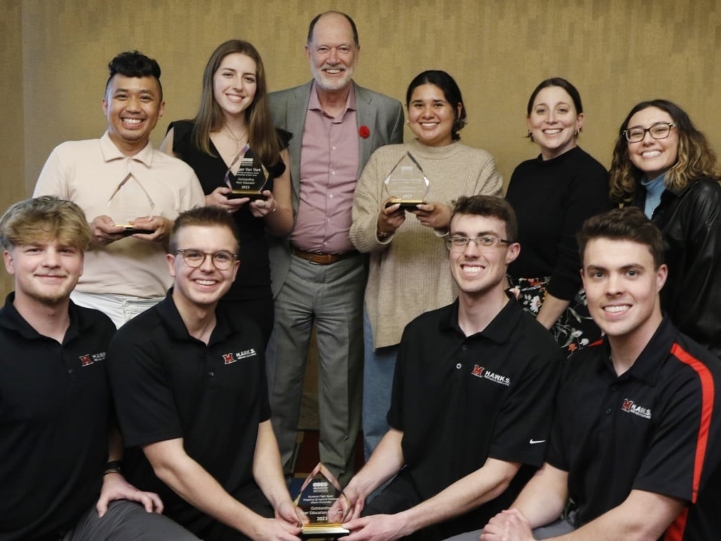 |
Every year, the Peer Education Initiatives, a part of the Health, Safety, and Well-being Initiatives of NASPA and carrying forward the legacy of BACCHUS, proudly recognizes outstanding achievements in peer education. These awards honor peer educators, their advisors, peer education groups, and programs that exemplify the innovative spirit and commitment to student well-being that BACCHUS pioneered. Award finalists will be featured and winners will be announced during the award ceremony. To see past winners, click here. |
- Outstanding Peer Education Group Award - This award recognizes peer education groups that have done exceptional work on their campuses. Awards will be granted to peer education groups that have consistently provided health, safety, and well-being education for students on their campuses in the past year.
- Outstanding Advisor Award - This award recognizes peer education advisors' commitment to peer education efforts, unique talents as a peer education advisor, leadership ability, and presence as a positive role model for peer educators.
- Outstanding Peer Education Program Award - This award recognizes creativity and overall effectiveness in campus awareness and education. Selected programs will represent the diversity of health, safety, and well-being topics. Programs must have occurred in the 2025 calendar year. You are free to discuss the number of attendees in your application, but please note that high attendance is not as important as the creativity and overall effectiveness of the program.
- Outstanding Peer Educator Award - This award recognizes students’ contributions to campus peer education efforts, academic successes, and leadership.
Award nominations are due Tuesday, October 28.
BACCHUS Scholarship Application
|
BACCHUS emerged in 1975, creating a pioneering peer education model focused on alcohol consciousness for university students. In 2014, BACCHUS joined NASPA, continuing to empower peer education groups and broadening it’s commitment to peer education through high-impact, evidence-based learning. Today, Peer Education Initiatives at NASPA continues to carry the mission of BACCHUS, which revolutionized student affairs, emphasizing collaboration and proactive health promotion, leaving a lasting legacy as a successful model for peer education programs. |
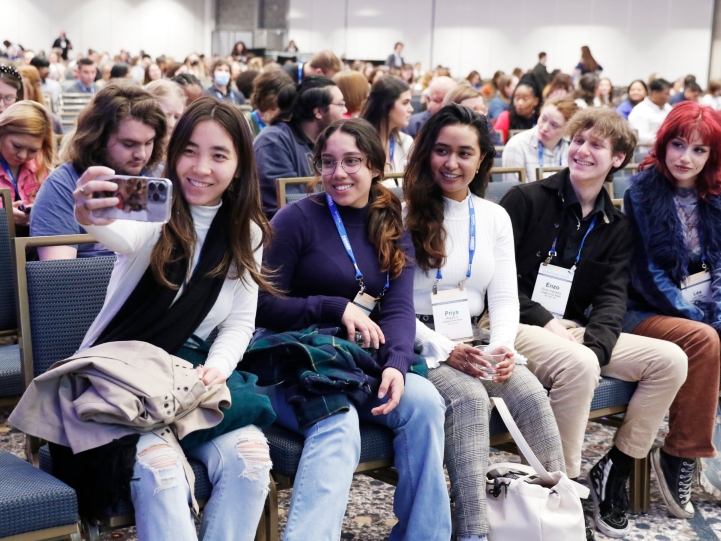 |
It is with this spirit and the generous support from members, friends, staff & alumni, that the BACCHUS Scholarship continues to fund attendance to the NASPA Peer Education Conference (formerly General Assembly) by covering the cost of registration. Peer educators from NASPA Institutional member campuses are eligible to apply.
The scholarship application period has now closed. Applicants will be notified of their status soon, no later than October 28.
If you missed the due date, we encourage you to explore the NASPA Foundation Professional Development Access Scholarships for additional opportunities to support your attendance. These scholarships offer the opportunity for NASPA members to stay connected to the field and the Association by covering the cost of a NASPA conference registration and the associated lodging.
Applications for the 2026 NASPA Strategies Conferences are due by November 14th, 2025.